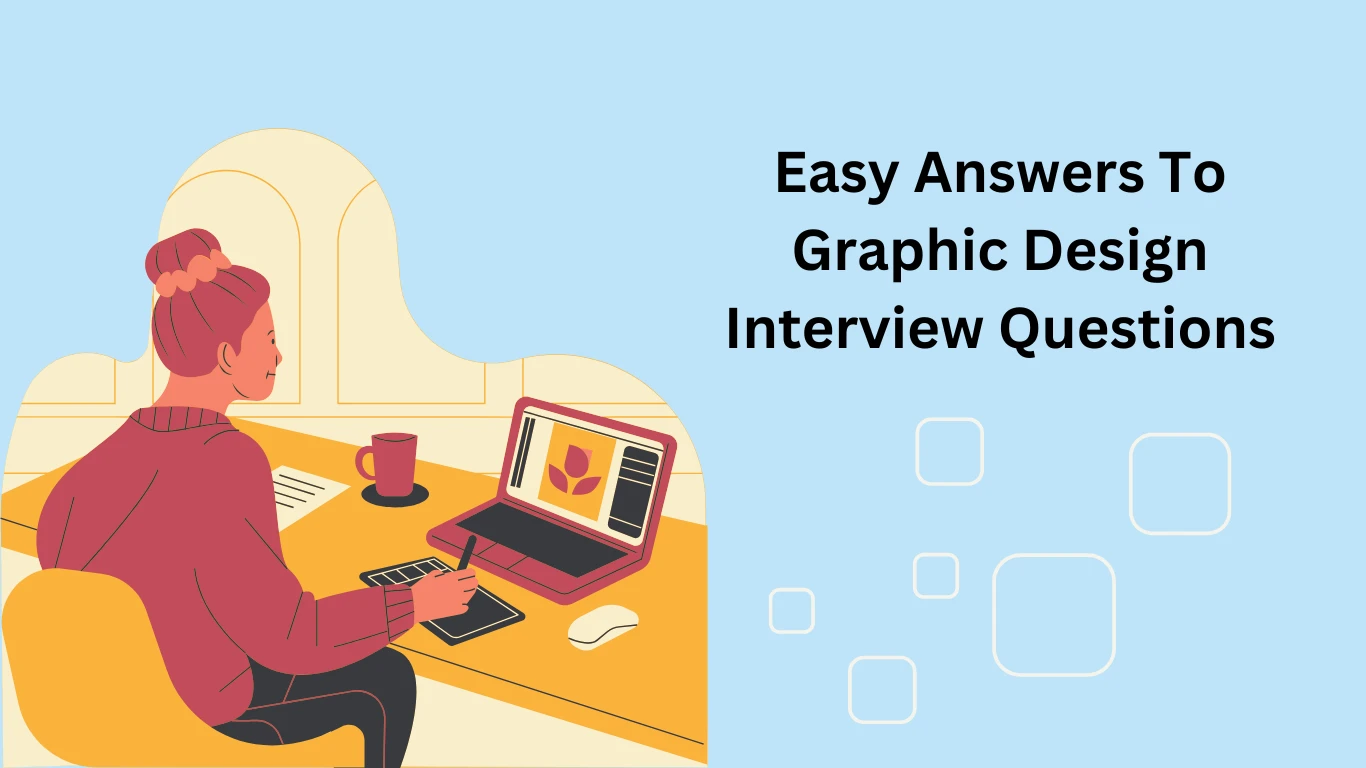Easy Answers To Graphic Design Interview Questions

Are you dreaming of becoming a graphic designer? Or are you already a designer and about to interview for a new job? Whether you are fresher or experienced, graphic design interview Some questions are asked again and again. Proper preparation and smart answers to questions can give you an edge in the interview.
Let us understand in a friendly manner that graphic design interview questions How to handle it and how to achieve success in this field.
1. Why are these questions asked in graphic design interviews?
When you interview for a graphic designer job, the company not only looks at your design skills, but also your Creativity, thinking, and problem-solving abilities Also pays attention to.
Interviewers also want to know that:
- You can work with a team or not.
- Do you understand the client's needs?
- What is your design process?
- “Why did you choose this job?” Questions like these are asked to understand your passion and career goals.
So now you not only have to show your technical skills but also your thinking in your answers.
2. Questions asked during the interview and how to answer them.
(1) "Why did you choose graphic design as a career?"
👉 How to answer:
"Graphic design is not just a career for me, but a passion. I have always been interested in creativity, and I enjoy bringing my ideas into visual form through graphic design. It allows me to learn something new every day and expand my skills. "Gives an opportunity to improve."
(2) "What is your favorite designing software and why?"
👉 How to answer:
"I love both Adobe Photoshop and Illustrator. Photoshop is great for photo editing and digital painting, while Illustrator is for vector-based designs. I choose software depending on the project."
(3) "What is your designing process?"
👉 How to answer:
"First I talk to the client to understand their needs. Then I do research and make a rough sketch. Once the client approves the sketch, I convert it into the final design. I try to The design should match the creative and the client's brand values."
3. Questions that may be asked in the interview
- "What's the biggest challenge you faced on a project?"
- "Are you comfortable working to deadlines?"
- "How important is teamwork to you?"
- "How do you stay up to date on new trends in graphic design?"
While answering these questions, try to keep your answers positive and based on your experience.
4. What questions can you ask the interviewer?
At the end of the interview it is often asked, "Do you have any questions for us?", This is a great opportunity to show your curiosity and seriousness.
👉 Some questions you can ask:
- "What is it like working with the graphic design team at this company?"
- “What do you think are the most important skills to become a successful designer?”
- “Does the company provide opportunities for training on new technologies and designing tools?”
These questions make you look more professional.
5. Tips for Graphic Design Interview
(1) Strengthen your portfolio
Your portfolio is your identity. Make it presentable and be prepared to tell the story behind each project.
(2) Understand the trends
The design industry is constantly changing. UX/UI Design, Branding, And digital marketing graphics Like getting hold of trends.
(3) Practice mock interview
Make a list of interview questions and practice them. This will help in increasing your confidence.
(4) Research about the company
Prepare yourself by understanding the needs of the company. This will make your answers more effective.
6. Remember the important questions for the Interview
If you are asked, "Why did you choose this job interview question graphic designer?", so show honesty and enthusiasm while answering it. It is important to show in the interview that you are passionate about this field and can add value to the company.
7. Avoid mistakes in interviews
- Don't give too long an answer.
- Do not answer without understanding the question.
- Never blame your work or team.
Conclusion
Graphic Design Interview The mantra of success is proper preparation and confidence. Show your creativity and problem-solving abilities while answering questions. Also, understand the needs of the company and present your skills by combining them with them.
If you've prepared properly, your dream job is just an interview away.
 Some Question
Some Question